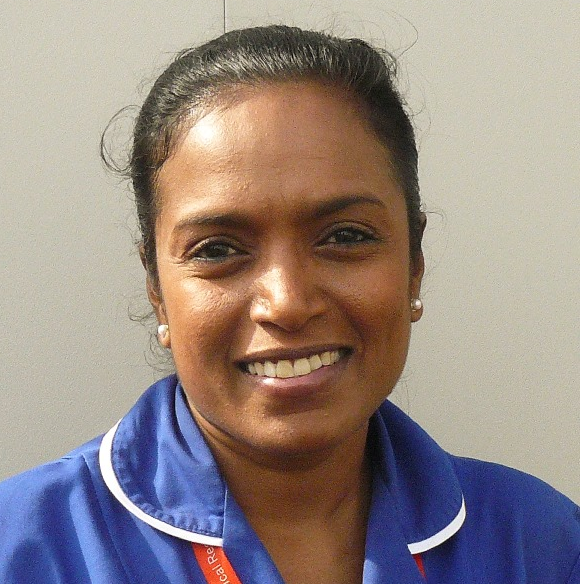‘A place for you to make your mark’

Clinical research sister Nisha Kandasamy works in the NIHR Cambridge Clinical Research Facility, where she works on oncology early phase clinical trials and on COVID-19.
What do you do day-to-day?
I co-ordinate between patients and study teams, ensure the studies are carried out in line with outlined procedures and protocols including obtaining consent for studies, and handle and process tissue and sample collection. Above all, we ensure the care and safety of research study participants.
How do you work with / support researchers?
With friendly and precise communication at all times! Open and honest conversation is absolutely crucial so that we follow good clinical practice at all times and ensure accurate data transfers among the study team.
What’s it like being a research nurse?
Research nursing is quite intensive. The role is highly responsible, and you are expected to keep up to date with the protocols, handle informed consent, and get involved with patient recruitment, data collection and safety reporting.
Why did you want to work in research?
After many years working in different clinical areas, I wanted to find a new challenge, learn new things and feel good about my contribution to make things better. Research nursing ticks all those boxes and I can honestly say I love it.
Clinical research is important as it essential for clinical innovation, treatments, and diagnoses. Research helps us to understand and develop on what does and does not work in the clinical world.
What opportunities are there as a research nurse?
They’re varied! You are always learning more about new laws and regulations, sciences, autonomy, innovation, creating change and best of all, spending more time with patients.
Research nursing is also a pathway to future roles – for example, lead research nurse or a peer reviewer for an ethics committee. There are so many ways to grow and expand skills.
What is the most rewarding part of your job?
To realise that I had been a part of a successful clinical research study, which potentially could be a breakthrough.
Why is your role important?
In my job role I need to be very precise and clear on what I am doing. Clear communication and coordination is vital so that every patient visit, sample collection, data transfer and patient care is as smooth and seamless as possible.
What work have you been doing during the Covid-19 pandemic? E.g., studies you worked on and what your role was. Were you redeployed to another area of the hospital or study team and what you were doing?
Engaged in oncology clinical trials and supported other clinical areas such as oncology day unit
What advice would you give to other nurses who are thinking of working in research?
If you are confident, optimistic and motivated – and are willing to accept responsibility and make decisions – then you would enjoy working as a research nurse.
I think research nursing is unique in that you are part of a team contributing to making things better and you’re also able to create pathways for others to follow. That’s great job satisfaction!
Cambridge University Hospitals is one of the UK’s leading research hospitals, and knowing you are part of that innovation gives great job satisfaction.
Whatever your talent or interest, there is a place for you to make your mark.


